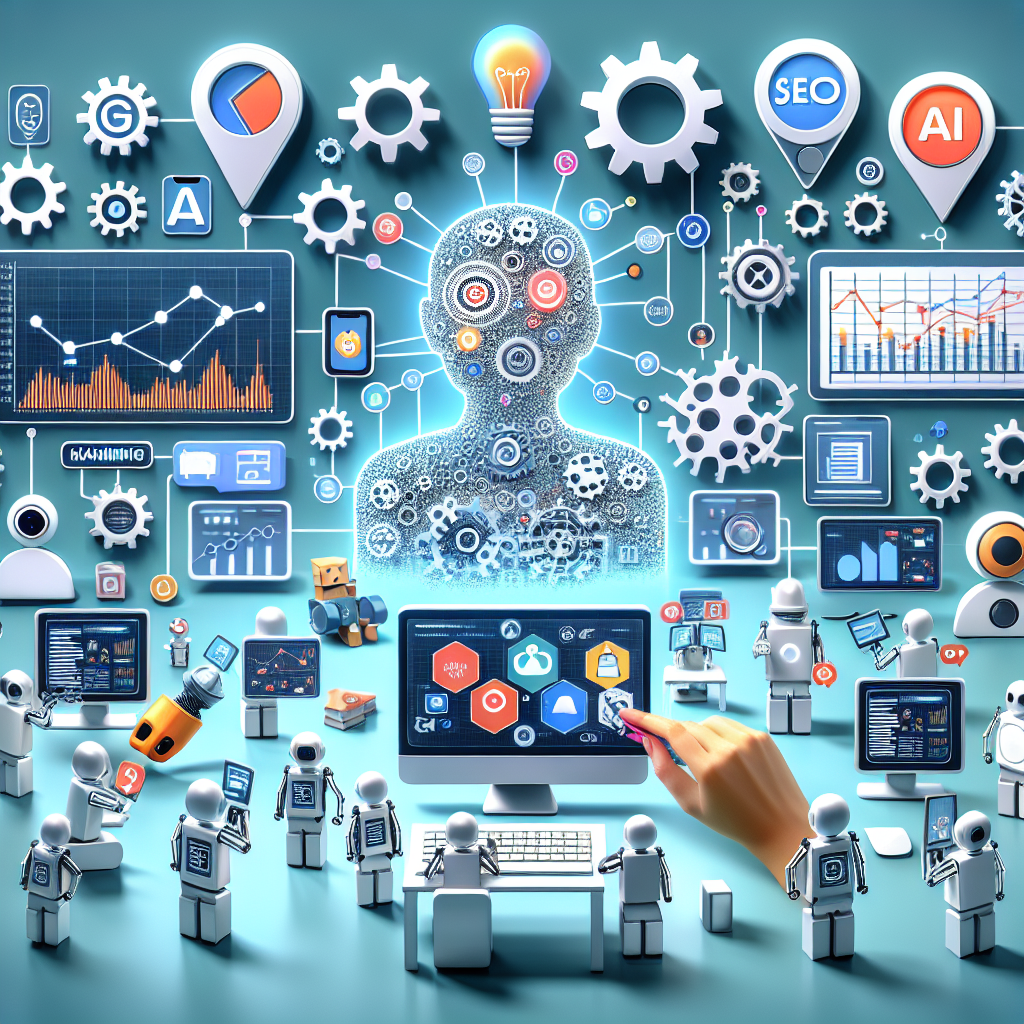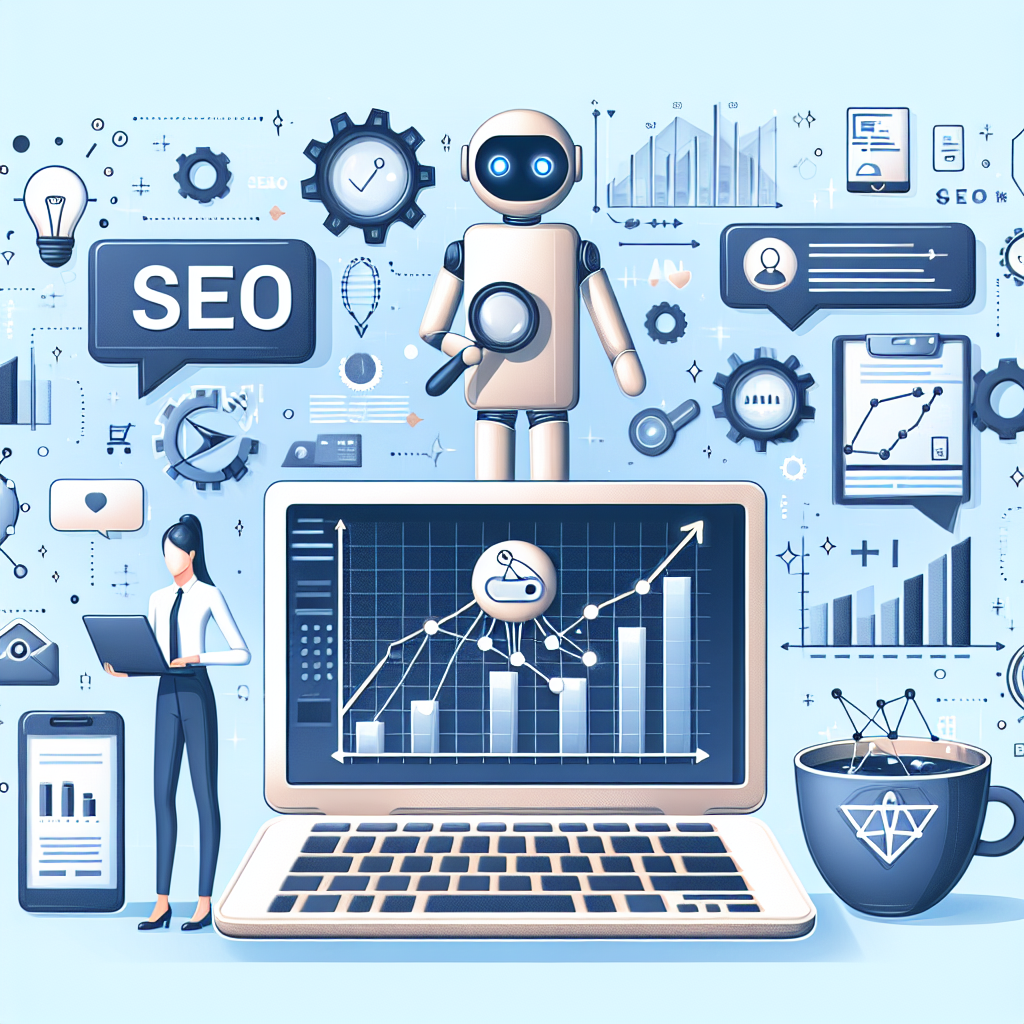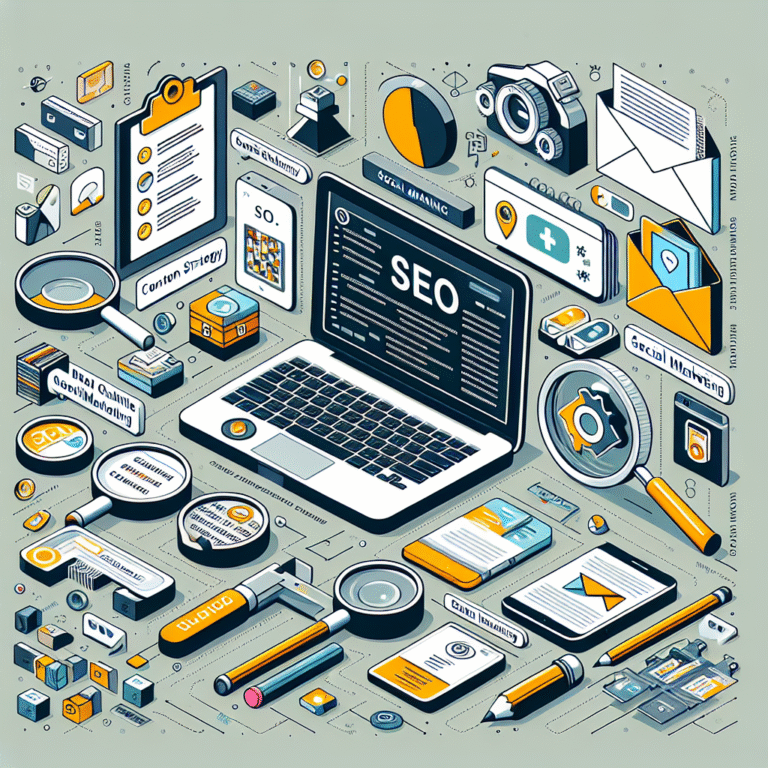Maximizing SEO and Content with AI: A Friendly Guide
Have you ever wondered how AI is reshaping the world of digital marketing? Maximizing SEO and content enhancement with AI is not just a trend; it’s a revolution in how we approach digital strategies. Imagine being able to predict what your audience wants before they even search for it. Sounds intriguing, right? In this guide, we’ll explore how AI tools can transform your SEO game, help you create compelling content, and give you a competitive edge. Let’s dive in and discover how AI is changing the landscape of SEO and content creation.
The Evolution of SEO: From Keywords to Artificial Intelligence

SEO has come a long way since the days of simple keyword stuffing. Remember when search engines were easily fooled by repetitive keywords? Those days are long gone. Today, search engines are smarter, and AI plays a crucial role in this evolution. But here’s the thing, AI isn’t replacing SEO experts; it’s enhancing their capabilities. By leveraging AI, marketers can analyze vast amounts of data to understand search intent, predict trends, and create content that resonates with their audience.
Consider the example of Google’s BERT update, which uses natural language processing to better understand the context of search queries. This AI-driven update has made search results more relevant to user intent, forcing marketers to prioritize content quality over keyword density.
Understanding the Basics: What is AI in SEO?
Before we delve deeper, let’s clarify what we mean by AI in SEO. AI, or Artificial Intelligence, refers to systems or machines that mimic human intelligence to perform tasks and can iteratively improve themselves based on the information they collect. In the context of SEO, AI can help in various ways:
- Content Creation: AI can suggest topics, generate outlines, and even write content drafts.
- Keyword Research: Advanced tools can analyze search trends and recommend keywords with high potential.
- Data Analysis: AI can process huge datasets to find patterns and insights about user behavior.
- Personalization: AI can help tailor content to meet the specific needs of different user segments.
For instance, AI tools like Clearscope help content creators optimize their work by suggesting semantically related keywords and providing insights into how well the content matches user queries.
How AI Enhances content Creation
Content is king, but creating high-quality content consistently is no easy feat. That’s where AI steps in. Have you ever stared at a blank screen, hoping for inspiration to strike? AI can provide that spark of creativity, offering suggestions that align with current trends and audience preferences.
Take BuzzSumo, for example, which leverages AI to analyze the performance of content across various platforms, helping marketers identify what types of content are most likely to succeed.
AI-Powered Content Tools: How Do They Work?
Imagine having a virtual assistant that reads your mind and suggests content ideas that perfectly align with your brand’s voice. AI tools like GPT-3 have made this a reality. These tools use natural language processing to understand context and generate human-like text. Here’s how they can help:
- Topic Generation: AI can analyze market trends and suggest topics that are likely to engage your audience.
- Content Optimization: AI tools can suggest changes to improve readability, SEO, and engagement.
- Automated Writing: AI can draft articles, product descriptions, and even social media posts.
For example, OpenAI’s GPT-3 can generate creative writing pieces, simulate dialogue, and even create code, showcasing its versatility in content creation.
Real-World Examples: AI in Action

Let me share a few examples of how companies are using AI to supercharge their SEO and content strategies. Take, for instance, HubSpot, a well-known name in marketing. They use AI to analyze customer data, which helps them personalize content and improve user experience. This, in turn, boosts their SEO ranking.
Another example is Grammarly, an AI-powered writing assistant that helps users enhance their writing by providing real-time suggestions on grammar, style, tone, and clarity.
Case Study: Netflix and Content Personalization
Netflix is another great example. They use AI algorithms to analyze viewing habits and recommend shows that users are likely to enjoy. This personalized approach keeps users engaged and reduces churn. The lessons from Netflix can be applied to content marketing by tailoring content to different audience segments, thereby maximizing engagement.
By using AI to segment audiences based on viewing preferences, Netflix ensures that users spend more time on their platform, which is a strategy that content marketers can emulate to increase audience retention.
Overcoming Challenges: AI and SEO Limitations
While AI offers numerous advantages, it’s not without its challenges. One major concern is data privacy. AI systems require access to large amounts of data to function effectively, which raises questions about user consent and data security.
Moreover, AI algorithms can sometimes produce biased results if they’re trained on unrepresentative datasets. This can lead to skewed SEO strategies that may not accurately reflect audience needs.
Balancing Innovation with Privacy
From what I’ve seen, the key is transparency. Companies need to be open about how they collect and use data, ensuring compliance with regulations like GDPR. By doing so, they can build trust with their audience while reaping the benefits of AI.
Organizations are encouraged to adopt ethical AI practices, such as regular audits of AI systems to identify biases and ensure equitable outcomes.
The Future of SEO and AI: What’s Next?

Now, let’s talk about the future. AI is continually evolving, and its role in SEO will only grow. We’re already seeing AI-powered voice search becoming mainstream. With devices like Amazon’s Alexa and Google Home, optimizing for voice search is becoming increasingly important.
Predictions for the Next Decade
Here’s my take on where we’re headed. In the next decade, I believe we’ll see AI becoming more integrated with AR (Augmented Reality) and VR (Virtual Reality). Imagine shopping online using AR, where AI helps you find the best products based on your preferences. This will create new opportunities for SEO and content marketing.
Additionally, AI-driven chatbots are expected to become more sophisticated, providing instant customer service and driving user engagement across digital platforms.
Maximizing AI: Practical Steps for Businesses
So, how can businesses start leveraging AI for SEO and content enhancement? Here are some actionable steps:
- Invest in AI Tools: Start by exploring AI-powered SEO tools like SEMrush, Ahrefs, and Moz.
- Train Your Team: Ensure your team understands how to use these tools and interpret the data.
- Focus on Quality: Use AI to enhance content quality, not just quantity.
- Stay Informed: Keep up with AI trends and adapt your strategy accordingly.
Furthermore, businesses should consider collaborating with AI specialists to tailor AI solutions that meet specific organizational needs, ensuring a seamless integration into existing workflows.
Conclusion: Embrace AI, But Keep the Human Touch
One thing that surprised me about AI is its potential to enhance creativity rather than stifle it. By taking over repetitive tasks, AI frees up time for marketers to focus on strategy and innovation. But remember, while AI is a powerful tool, the human touch is irreplaceable. Use AI to complement your skills, not replace them. In the end, the goal is to create content that resonates with your audience, builds trust, and drives engagement. So, are you ready to embrace the future of SEO with AI?





